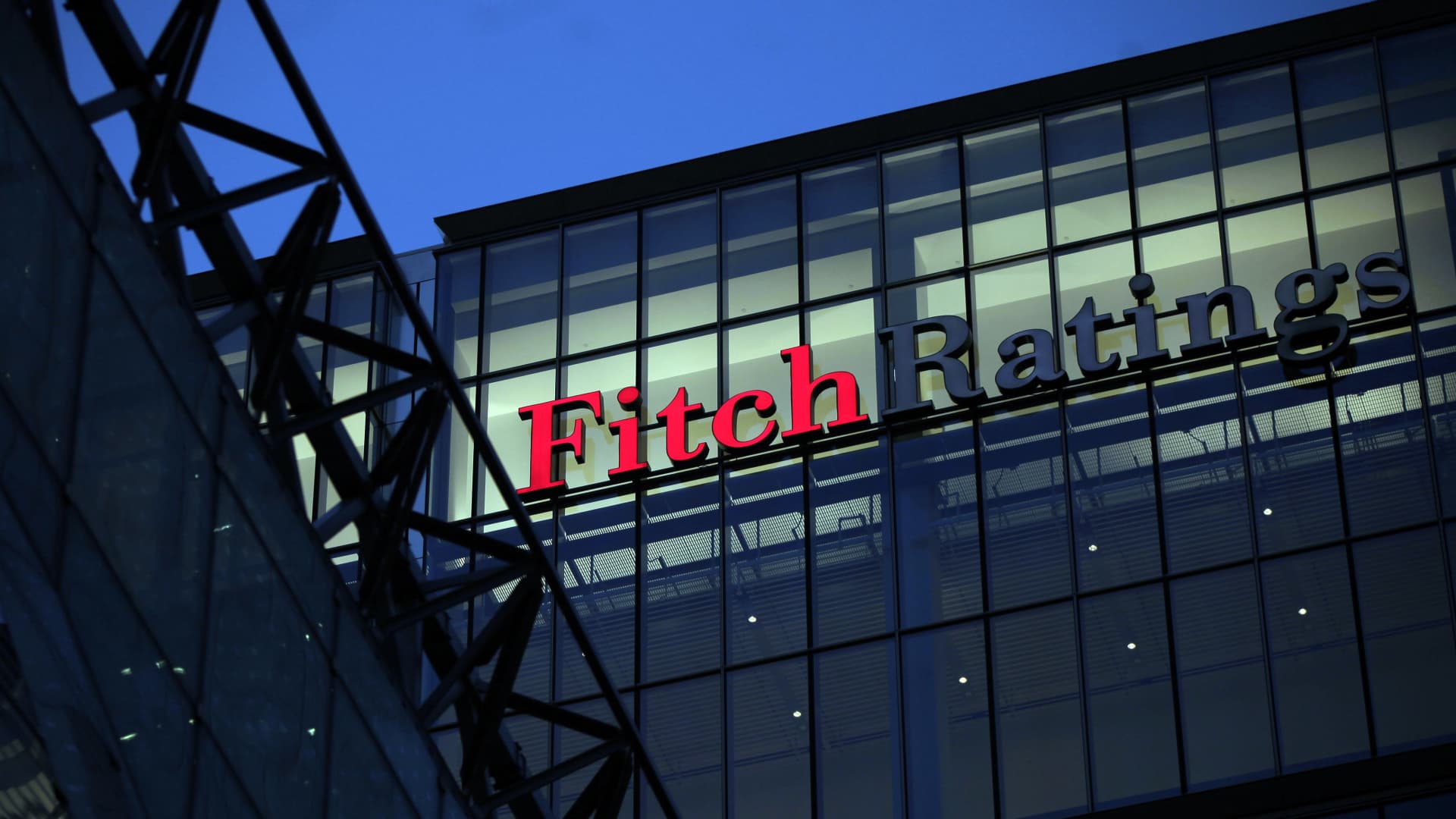A sign for the financial agency Fitch Ratings on a building at the Canary Wharf business and shopping district in London, U.K., on Thursday, March 1, 2012.
Matt Lloyd | Bloomberg | Getty Images
A warning from a Fitch Ratings analyst indicates that the U.S. banking industry is approaching the risk of widespread rating downgrades, potentially affecting major banks like JPMorgan Chase.
In June, Fitch lowered its assessment of the industry’s health, which went largely unnoticed as it did not trigger downgrades on banks. However, another downgrade to A+ from AA- would require Fitch to reevaluate ratings for over 70 U.S. banks it covers, according to Chris Wolfe, the analyst interviewed at Fitch’s New York headquarters.
Recent actions by credit rating firms have been unsettling for markets. Moody’s downgraded several banks and warned of more cuts, including top institutions like Truist and U.S. Bank. Fitch also downgraded the U.S. long-term credit rating due to political dysfunction and rising debt loads.
Fitch aims to signal that bank downgrades are a real risk, although not inevitable, as per Wolfe. The June action reflected pressure on the country’s credit rating, regulatory gaps exposed by regional bank failures, and uncertainty around interest rates.
If the industry’s score falls to A+, top-rated lenders like JPMorgan and Bank of America would likely be downgraded to A+ as well. This would then force Fitch to consider downgrades on their peers’ ratings, potentially pushing weaker lenders closer to non-investment grade status.
Shares of JPMorgan, Bank of America, and Citigroup dipped in premarket trading following the news, while the KBW Bank Index declined 1.7%.
Hard decisions
BankUnited, currently at BBB, is already at the lower bounds of investment grade. A further downgrade would bring it close to non-investment grade. Wolfe refrained from speculating on the timing or impact of this potential move on lower-rated firms.
“We’d have some decisions to make, both on an absolute and relative basis,” said Wolfe. “On an absolute basis, there might be some BBB- banks where we’ve already discounted a lot of things and maybe they could hold onto their rating.”
JPMorgan, Bank of America, and BankUnited declined to comment on the matter.
Rates, defaults
The path of interest rates determined by the Federal Reserve is the primary factor that could lead to downgrades, according to Wolfe. Higher rates for longer periods would pressure the industry’s profit margins.
Another concern is if the industry’s loan defaults exceed historically normal levels, especially in a rate-hiking environment. Office loan defaults from smaller banks are of particular interest to Fitch.
The potential impact of widespread downgrades is difficult to predict. Downgraded banks may need to pay higher yields to investors, further compressing profit margins. Some banks could even be locked out of debt markets entirely. Downgrades could also trigger unfavorable provisions in lending agreements and other complex contracts.
“It’s not inevitable that it goes down,” said Wolfe. “We could be at AA- for the next 10 years. But if it goes down, there will be consequences.”
Denial of responsibility! VigourTimes is an automatic aggregator of Global media. In each content, the hyperlink to the primary source is specified. All trademarks belong to their rightful owners, and all materials to their authors. For any complaint, please reach us at – [email protected]. We will take necessary action within 24 hours.


